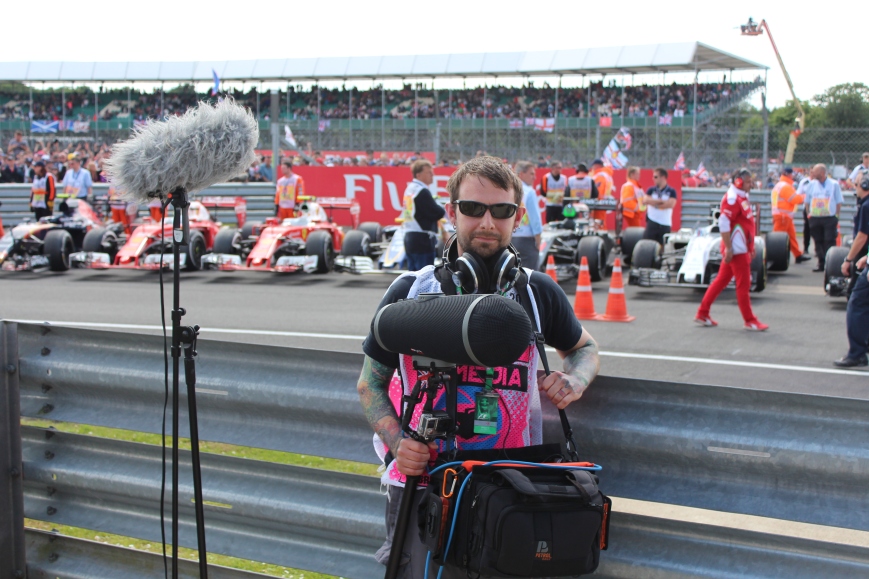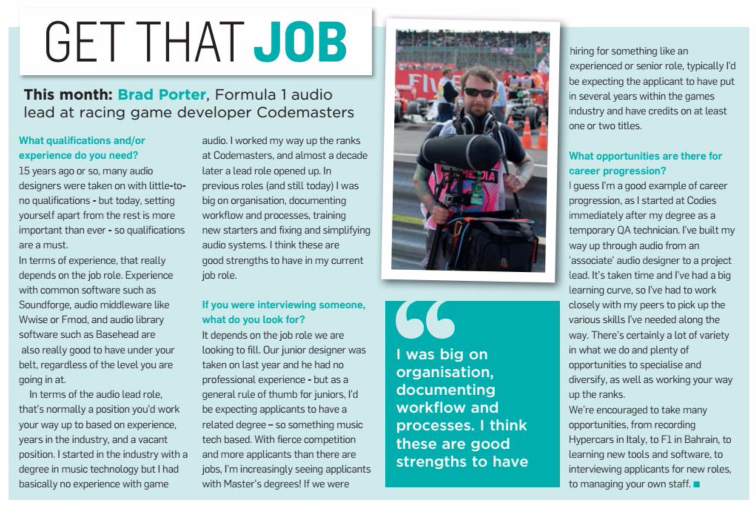Note: This article was originally published in Develop, June 2017 #183, p.44
This month:Brad Porter, Formula 1 audio lead at racing game developer Codemasters
What qualifications and/or experience do you need?
15 years ago or so, many audio designers were taken on with little-to-no qualifications – but today, setting yourself apart from the rest is more important than ever – so qualifications are a must.
In terms of experience, that really depends on the job role. Experience with common software such as Soundforge, audio middleware like Wise or Fmod and audio library software such as Basehead are also really good to have under your belt, regardless of the job level you are going in at.
In terms of the audio lead role, that’s normally a position you’d work your way up to based on experience, years in the industry, and a vacant position. I started in the industry with a degree in music technology but I had basically no experience with game audio. I worked my way up the ranks at Codemasters, and almost a decade later a lead role opened up. In previous roles (and still today) I was big on organisation, documenting workflow and processes, training new starters and fixing and simplifying audio systems. I think these are good strengths to have in my current job role.
If you were interviewing someone, what do you look for?
It depends on the job role we are looking to fill. Our Junior designer was taken on last year and he had no professional experience – but a general rule of thumb for juniors, I’d be expecting applicants to have a related degree – so something music tech based. With fierce competition about and more applicants than there are jobs, I’m increasingly seeing applicants with a Master’s degrees! If we were hiring for something like an experienced or senior role, typically I’d be expecting the applicant to have put in several years within the games industry and have credits on at least one or two titles.
What opportunities are there for career progression?
I guess I’m a good example of career progression, as I started at Codies immediately after my degree as a temporary QA technician. I’ve built my way up through audio from an “associate” audio designer to a project lead. It’s taken time and I’ve had a big learning curve, So I’ve had to work closely with my peers to pick up the various skills I’ve needed along the way. There’s certainly a lot of variety in what we do and plenty of opportunities to specialise and diversify, as well as working your way up the ranks.
We’re encouraged to take many opportunities, from recording Hypercars in Italy, to F1 in Bahrain, to learning new tools and software, to interviewing applicants for new roles, to managing your own staff.
